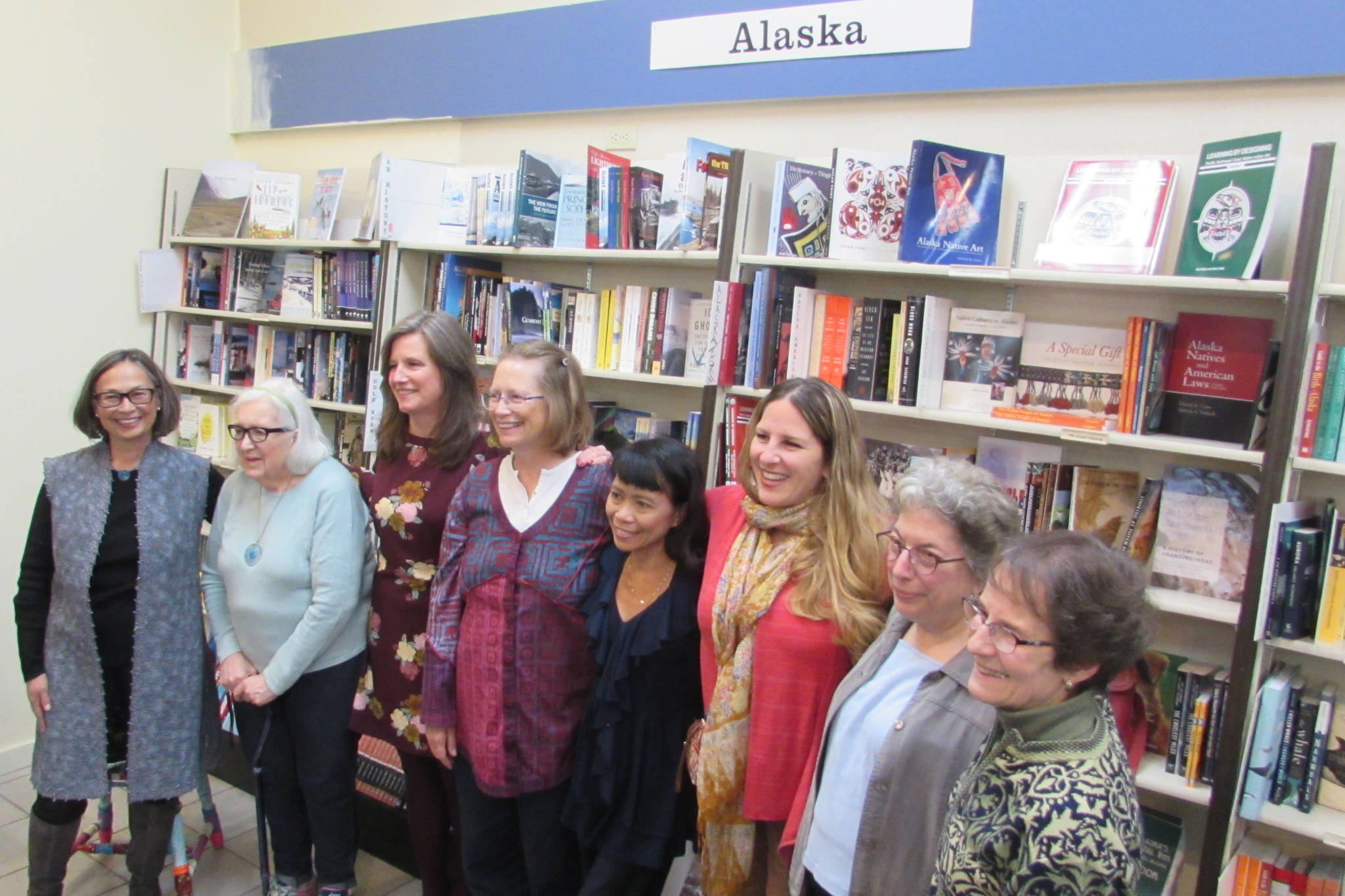For the first time in 26 years, an Alaska Women Speak reading was held in Juneau.
Alaska Women Speak is the name of both a nonprofit and a quarterly journal — both of which are devoted to sharing Alaskan women’s expression of ideas, literature and art.
“It’s so important,” said Carmen Davis, president of Alaskan Women Speak’s board of directors, Thursday evening at Hearthside Books in Nugget Mall before introducing the event’s keynote speaker Mary Lou Spartz.
Spartz spoke to a crowd that filled an overstuffed sofa, folding chairs and spilled into aisles about writing in general and writing in Southeast in particular.
She said there’s no better place to pursue writing, and talked about how the action of writing can be involuntary to those familiar with the impulse.
“You don’t have a choice,” Spartz said. “You just do it. Your muse comes along and kicks you in the butt, and you’re going to do this. The muse is an interesting part of you. Sometimes it’s very, very generous. Very loving. Sometimes it just takes a vacation, and you can’t find it anywhere. So you just have to live with that possibility.”
She also spoke about Alaska’s “tremendous” literary legacy and gestured toward a wall of Alaskan-authored books.
“What a legacy, what a place to be,” Spartz.
She mentioned Nora Dauenhauer, author Susi Gregg Fowler, who was in the audience, and others as part of that lineage before turning the microphone over to six accomplished writers from the southeast.
Those who read included Amy Pinney, Kate Boesser, Margo Waring, Miriam Wagoner, Dianne DeSloover and Katie Bausler.
Some read poems and others read prose. Subject matter included first-day-of-school clothing, the objects unearthed by thawing snow and the literal steps across an icy I-beam that ultimately lead to divorce — and those were just the poems read by Waring.
Waring told the Capital City Weekly after her reading that while her poems may reference her girlhood, she came to writing well into adulthood.
“There was no impulse for creative writing until I was much older,” Waring said.
She chalked it up to banking enough life experience on which to reflect and write.
Others read about their doomed childhood poems, surviving abuse, weather and even quantum physics.
“Everything is vibrating energy,” was the refrain of one of Pinney’s poems.
Pinney has a wildlife and plant biology background and said pairing subject matter with poetic forms is something that takes some experimentation.
“I think it’s kind of random,” she said. “I think of the topic, then I’ll run through a list of forms.”
Pinney said trying out different types of poems makes poetry more fun.
It was already much more colorful than the just-the-facts science writing training to which she no longer adheres.
“I feel like I’m trying to break it all the time,” Pinney said.
• Contact arts and culture reporter Ben Hohenstatt at 523-2243 or bhohenstatt@juneauempire.com. Follow him on Twitter at @capweekly.

